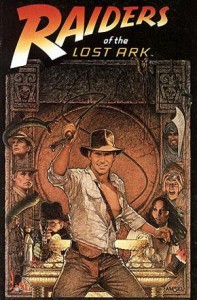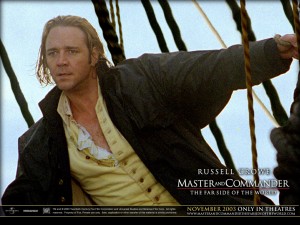As y’all know, I am partial to the whole Tauriel/Kili romance in the Hobbit movies, and I have this idea for a short piece in my head wherein Tauriel must go to Dís and bring her news of the deaths of both her sons and her brother. I’m seeing this as perhaps Tauriel’s last act before she bails for Valinor—or perhaps thinks she’s about to bail for Valinor. I can totally see her and Dís teaming up together to roam Middle-Earth for a while in shared grief and companionship. It could even be a parallel to Legolas and Gimli, later. And mostly I just have an urge to write about female dwarves.
But while I’m on the topic of Middle-Earth fanfic, Dara and I got into discussing a potential AU last night after I finished rewatching the first half of The Two Towers. I was struck anew by the scene in which Sméagol banishes his darker Gollum-self—and how for a very short time, he’s just so happy. “Sméagol is free!”
And then of course it goes back to hell after Faramir’s men are so harsh to him. Gollum becomes the dominant personality once more. But Dara and I wondered: what if that hadn’t happened? How would the scene at Mount Doom played out differently?
I can see Frodo maybe beating down poor Sam just before he proclaims, “The Ring is mine!”—but then, Dara and I decided, Sméagol would put a hand on his shoulder to stop him.
And he says, “I know. Let the Precious burn.”
I. Not we. Because now that I have finished my reread of the books, I am reminded that Tolkien did indeed use pronouns as a marker of Sméagol’s mental state. And in this version of the story, he would have become more stable than he’d been in centuries.
The Eagles would have had three small travelers to rescue, not two.
Dara and I think that perhaps Sméagol could not have handled going back to the Shire, and that perhaps Gandalf would have taken him into his care—properly this time, not as a prisoner. And as he is finally free of the Ring, I see Sméagol learning to welcome the touch of sunlight once more. Remembering the taste of fresh bread. Maybe even being able to touch things made by the elves without pain.
But Sméagol, much, much older than Bilbo, would quickly start to age and draw near to his death. And he would have been on that final boat to Valinor, ancient, wizened, and so fragile that he might not even have been able to walk. Perhaps Gandalf would have carried him.
Yet he would have been granted a place on that boat. And a place in Valinor. Because at the end of the day, he too was a Ringbearer. And he paid his penance for the slaying of Déagol, for all the many long, dark years that he kept the Ring under the Misty Mountains.
As the Fourth Age began and the War of the Ring passed into the legends of Men, Sméagol’s name would have been spoken alongside that of Frodo Baggins and Samwise Gamgee. He would have been hailed as a hero for having kept the Ring from Sauron—secret and safe, for five hundred years, even though it nearly destroyed his mind.
Don’t get me wrong; I would not trade a single word of the narrative as actually written.
But this makes for one hell of an AU. Sméagol. Sing his name, sons and daughters of the free peoples of Middle-Earth. Remember him with honor.



